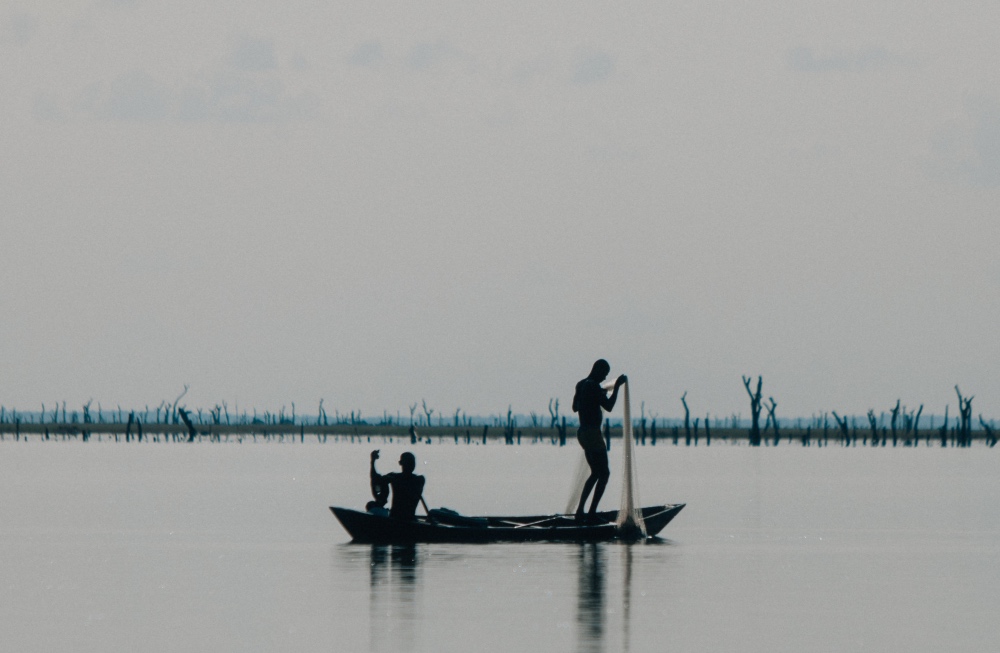
DAVID ADAMS speaks with investigator ‘V’, about his work conducting human trafficking and slavery-related investigations for the International Justice Mission…
As a seasoned police officer and, then, in more recent years, an investigator looking into sex trafficking cases for the International Justice Mission, ‘V’ – whose real name name has to be withheld for security reasons given the sensitivity of his work – thought he’d pretty much seen at all.
But when he came face-to-face with the exploitation of boys as young as four used as slave labour in the fishing industry on Ghana’s Lake Volta – the world’s largest artificial reservoir, he knew he hadn’t.
“I thought I was prepared for that because I’d been working [on cases involving] sex trafficking of young girls,” he told Sight while in Australia earlier this month for The Justice Conference.
“But I wasn’t. I mean, you stand in front of a boy that’s starving to death and [been] beaten and got scars, that’s eight-years-old – I don’t know how you can prepare for that. We turn a lot of stuff over to God. You have to.”

Fishing on Lake Volta, where an IJM investigation found hundreds of boys were working slavery. PICTURE: Courtesy IJM
That undercover mission, which had involved posing as a seafood restaurant owner to successfully determine that hundreds of boys were indeed being sold into slavery and forced to work in the fishing industry based on the lake, has, to date, resulted in the rescue of 168 boys from slavery and the prosecution of 39 people for the trafficking of young boys.
V describes the Ghana investigation as one of the toughest he has ever been involved in, not only during his time with the International Justice Mission, but during the previous 22 years he spent as a police officer.
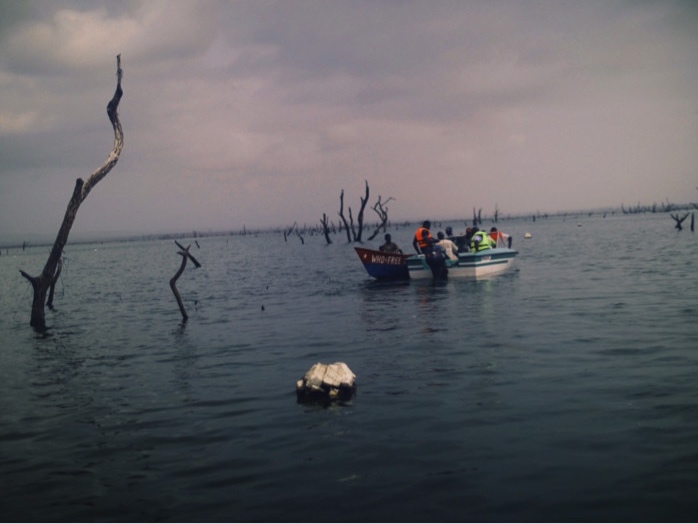
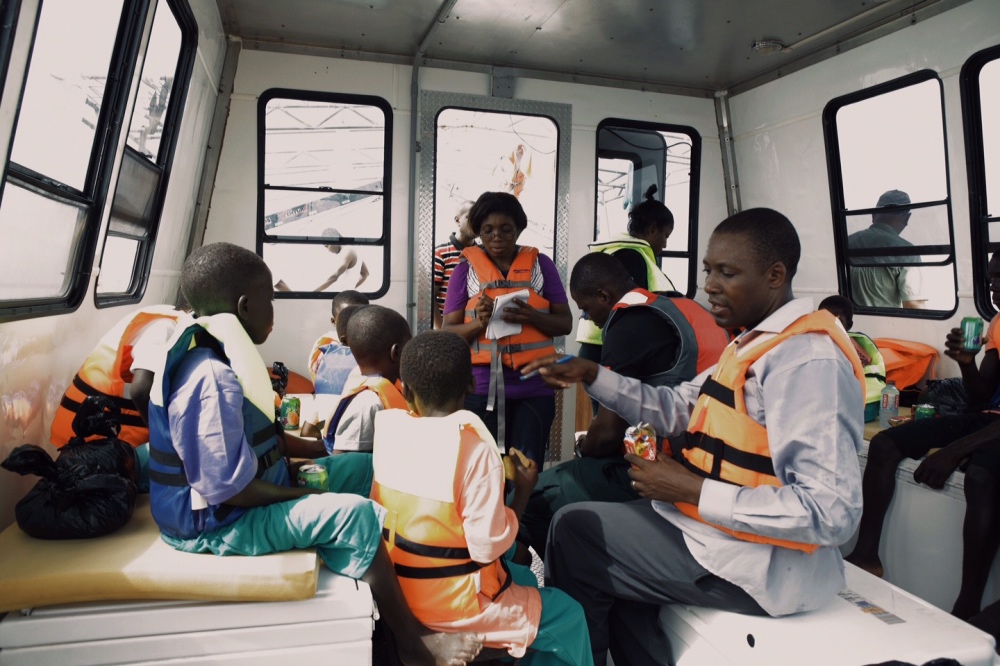
Images from first rescue which took place on Lake Volta after the IJM investigation. PICTURE: Courtesy of IJM
“I thought I was prepared for that because I’d been working [on cases involving] sex trafficking of young girls. But I wasn’t. I mean, you stand in front of a boy that’s starving to death and [been] beaten and got scars, that’s eight-years-old – I don’t know how you can prepare for that. We turn a lot of stuff over to God. You have to.”
– Investigator V
It was his investigative experience which had led IJM – a Christian organisation founded in the US dedicated to combatting issues like sex trafficking, slave labour, child exploitation and other forms of violence against the poor which has field operations in 14 countries across the world and offices in 20 – to approach him in the first place.
Having grown up in California, V had spent six years in the Marines following highschool, working as a search and rescue swimmer on a helicopter before going on to work as a police officer. He subsequently spent 10 years with the California Highway Patrol and then 12 as a special agent with the California Department of Justice, a role in which he worked in undercover drug enforcement, including as a supervisor, and, later on in his career, as a cross-sworn agent with the FBI investigating police corruption.
V, whose father was a police officer, had become a Christian at the age of 10 when, during a summer in the late Sixties, he was caught stealing a candy bar. His mother, who like his father was not a Christian, told him later that “bad people steal”.
It was a comment that resonated with him – about a month before that conversation he had watched his grandfather die in front of him and when he’d asked his mother what happens when people die, his mother had told him “good” people go to Heaven and “bad” people go to Hell. Putting two-and-two together, he was confronted with the idea that as a “bad” person who stole, his destiny would be Hell.
But that same summer, V also attended a Christian youth camp and there heard the “true message of faith”, finding a solution to his “dilemma”.
“It was presented that we’re all basically bad and this was the way out of that – the Gospel message. So I accepted Christ at 10-years-old at camp.”
V says that God has “taken care of me through life ever since”.
His decision to work for IJM came about 12 years ago when he took an opportunity for early retirement from policing in the early 2000s.
“So I began to look for opportunities for work after a career in law enforcement – I mean, what do you do? And I also have a faith, so I was considering, maybe, some part-time missions work. Maybe playing golf once in a while, maybe working a little bit, maybe travelling a little bit.”
As part of his quest for work, he filled out an online profile and IJM – who V says were at the time “really ramping up their ability to conduct sex trafficking investigations, slave labour investigations” – was among those who monitored the site. They called him “out of the blue” and asked him whether he’d be interested in a job.
During the subsequent discussions, V learnt about their work in fighting slavery and human trafficking around the world. He recalls his initial response was somewhat incredulous – he asked the representative what they meant by the word ‘slavery’ and then, when told there were tens of millions of people living in slavery today (the figure is now estimated at more than 40 million), he asked how that could be the case, given he knew nothing about it.
Eventually the IJM representative asked him if, given his investigative experience, he would consider coming to work for IJM in helping to build sex trafficking cases in Asia as well as train investigators and build relations with the police.
While he didn’t think he would do so, V says that even at that early stage of discussions he felt what he describes as a “nudge from God”.
“I felt like ‘I’m not sure I wanted to do it but there was some deeper meaning and purpose to it’,” he says.
Part of that was his belief that his wife wouldn’t want him to take it on – “That was my way out, but my wife ended up saying ‘I think we can do this.’” He spoke to his children and they agreed, then he spoke to some pastors and they also gave their support.
Convicted now that he had an opportunity to do “something meaningful”, he eventually “surrendered” to the idea and he and his wife – their two children now adults – moved to Kolkata in India to take up the post of IJM’s director of investigations there.
“It was completely out of my comfort zone,” he says. “[I]f I had of known beforehand some of the things that God was going to take me through, that were going to happen, I probably would have said ‘No’.”
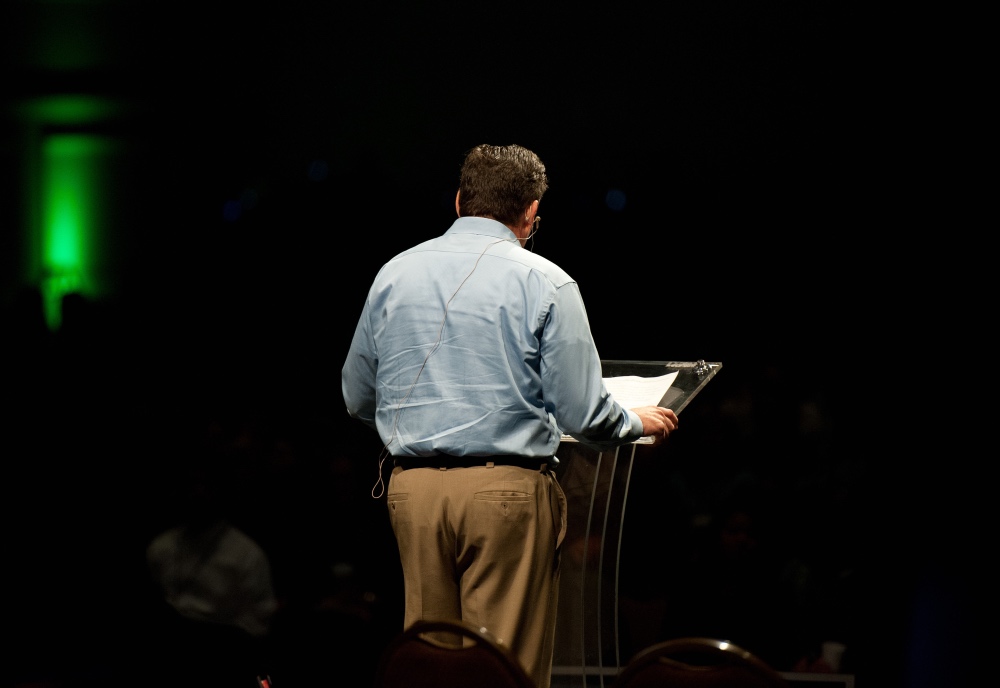
Investigator V giving a presentation on his work with IJM. PICTURE: IJM
V says IJM’s aim is to help officials in countries which are struggling to address issues like sex trafficking and forced labour.
“The way we do that is by actually helping to do the casework, to show the police, the prosecutors, the courts that they can do it…We can show them how to enforce and apply their own laws.”
He says one of the first goals of his work in Kolkata was to help prosecutors and police work towards their first human trafficking conviction.
“They’d had laws on the books…for years about human trafficking and they had not one conviction…” he says, noting that he was repeatedly told it would never happen. “So one of our first goals was not just to rescue these young girls but to help the prosecutors and the police gather evidence properly, build a case and prosecute the criminals…It took us a year-and-a-half but eventually we got a conviction and it sent shockwaves through the community there.”
Building trust with local law enforcement authorities is key to the “end game” of IJM – which is to get to a point where the justice system operates as it should, so their assistance is no longer needed in a country.
“So one of our first goals was not just to rescue these young girls but to help the prosecutors and the police gather evidence properly, build a case and prosecute the criminals…It took us a year-and-a-half but eventually we got a conviction and it sent shockwaves through the community [in Kolkata].”
– Investigator V
In an illustration of how that trust is built – and of the sort of miracles he’s seen in the job – V relates how he and an IJM team were involved in the rescue of a 13-year-old girl and two others from a Kolkata brothel.
“We got the trafficker arrested but prosecution takes a long time – years. So we got her into protective custody in an aftercare home and she was doing very well…” he says. “But the traffickers had never stopped looking for her and over time they were able to infiltrate her aftercare home.”
The traffickers managed to convince a young man to become her friend and entice her to run away with him to be married. He was successful and the traffickers were able to seize the girl and take her across India to Mumbai where she was sold to another trafficker.
“We were devastated,” says V. With the trail cold, police investigators hit a dead end. But V says he and his team “could not accept it” and so asked the police if they could continue to try and find her. Granted permission, they headed to Mumbai and began to look for her in that huge city of 22 million.
It was four months before the girl was found and so V, who by that time had returned to Kolkata, flew out to Mumbai where he and his team went to the property where the traffickers were holding the girl. Confirming she was indeed there, they then contacted the local police, who agreed to come and arrest the men. But the traffickers and the girl emerged from the property before the police arrived and V says they were about to get into a rickshaw and leave.
V rang the local police again and explained the situation. “And here’s the miraculous thing,” he says.”The police in Mumbai said: ‘I’m giving you the authority to stop that rickshaw and hold them in custody’. I said, ‘Sir, I’m not even a citizen of your country’ and he said ‘That’s OK., I’m giving you that authority’. And I actually hung up the phone because I didn’t want him to change his mind.”
And so the six investigators were able to stop the rickshaw and surround it until the police arrived. Against the odds, the girl was rescued a second time.
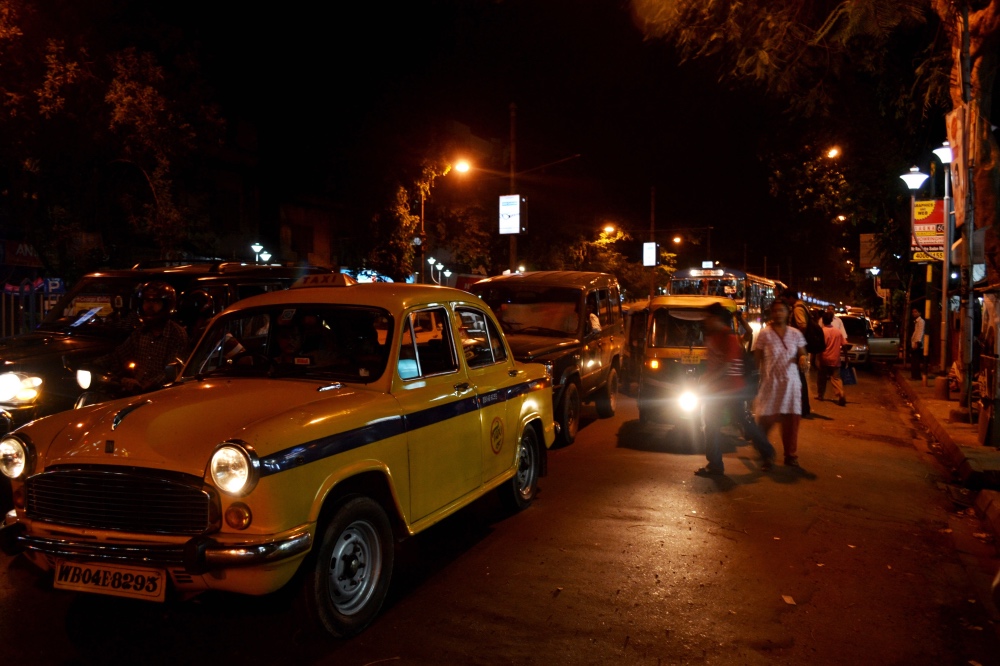
Street scene in Kolkata, a city where investigator V spent three years overseeing investigations and rescues of underage girls trapped in sex trafficking. PICTURE: Supplied.
With the problem of human trafficking as large as it is – latest figures from the Walk Free Foundation and International Labour Organization put the number of slaves around the world at 40.4 million in 2016, it would be easy to be overwhelmed by the scale of the problem.
But V, who, after spending three years in Kolkata, went on work in IJM’s investigations department in Washington, DC, and now contracts with IJM in designing and overseeing investigations internationally, says he’s able to avoid getting overwhelmed by remembering “my job, my role, God’s nudge on me, is not to rescue every slave; it’s not to solve that problem”.
“My role us to be faithful, to answer His call. I can’t carry the burden of solving everything but I can be faithful. I can present my life in service to others and rescuing others. Yeah, maybe it’s always going to be here, maybe we’re not going to end slavery in my lifetime, but I’m going to fight as hard as I can, for as long as I can, to do as much as I can and rescue as many as I can.
“I think the joy and the hope and the purpose comes, not so much from winning the war, but from being in the battle, from stepping up. I could choose to ignore it, I could choose not to do it – we all can, we can look the other way. But it’s still going to be there….[And] we’re learning, we’re getting better at it and we’re seeing it now for what it is.”
– Investigator V
“I think the joy and the hope and the purpose comes, not so much from winning the war, but from being in the battle, from stepping up. I could choose to ignore it, I could choose not to do it – we all can, we can look the other way. But it’s still going to be there….[And] we’re learning, we’re getting better at it and we’re seeing it now for what it is.”
V says his work with IJM has “absolutely” impacted his faith, firstly by taking him out of his “comfort zone”.
“Speaking for me, my faith seemed like it was so superficial…But being out in this position where absolutely you’re at your wits end – [where] you have no resources other than to pray and trust God and you choose to do that and not give up and see God do the miraculous – that is like a stamp on your faith to make it real.”
“I could tell you stories all night long, probably, of how I’ve seen impossible things happen and seen God’s hand actually at work….It’s completely changed by walk, my worldview, it’s grown my ability to hear God’s voice in my life. But the actual operations, the actual rescues, the actual work – it’s not gotten any easier.
“When I was in India, the day before I left, we did an operation, a rescue in the heart of the red light area and it was every bit as hard as the first one we did. But what has changed is it was easier for me to recognise God’s hand in it.”





